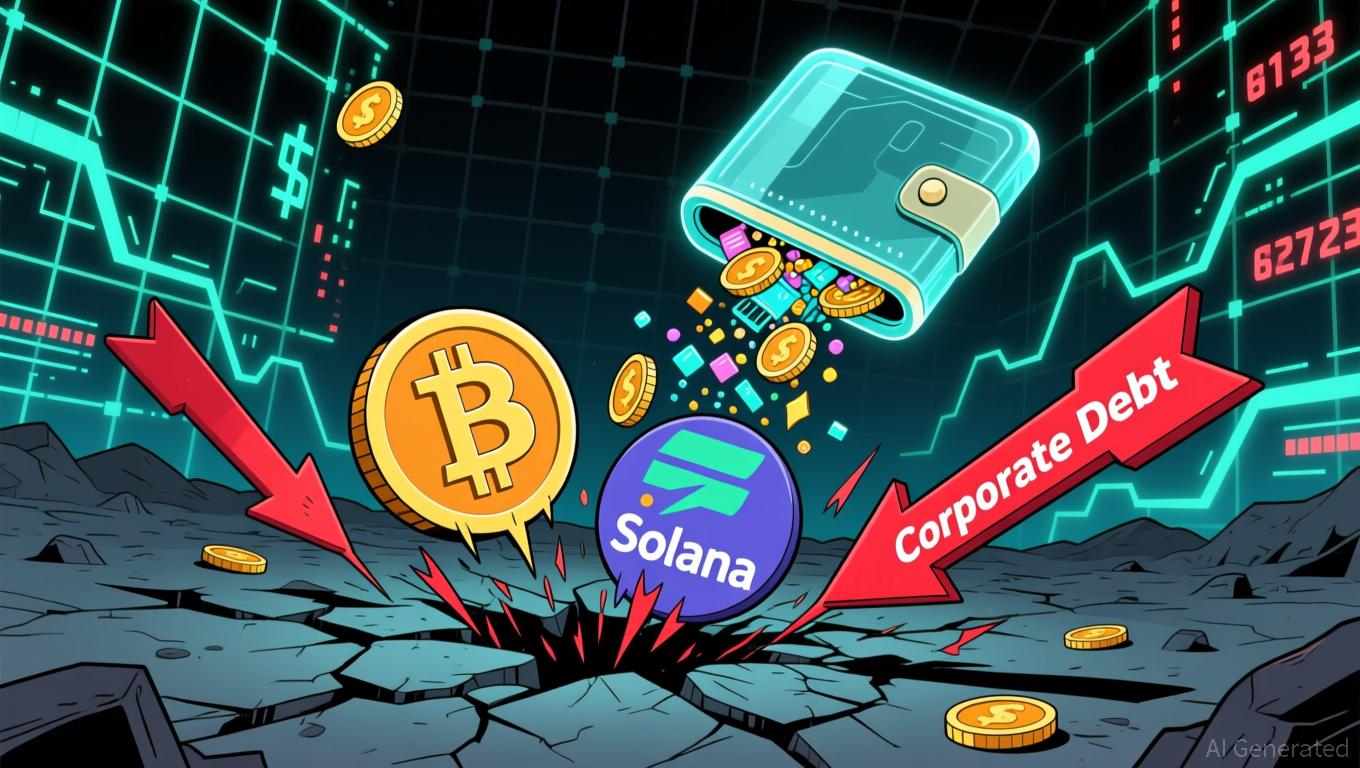BlackRock moves towards an Ethereum staking ETF with new Delaware trust
BlackRock has set up a new Delaware trust that could open the door to a staking-based Ethereum exchange-traded fund.
- BlackRock formed the iShares Staked Ethereum Trust ETF on Nov.19 in Delaware.
- The filing is an early step toward a potential staking-enabled Ethereum fund.
- The move follows rising interest in yield-focused ETH ETFs among major issuers.
BlackRock has taken another step into Ethereum’s staking ecosystem by registering the iShares Staked Ethereum Trust ETF as a new statutory trust in Delaware.
Records from the Delaware Division of Corporations show the trust was officially formed through a filing on Nov. 19.
A new setup for a staking-focused ETH product
While the listing does not include product documentation, the entity record is publicly available through the state’s search portal. Daniel Schweiger, a Wilmington-based BlackRock managing director who oversaw the registration of the iShares Ethereum Trust in late 2023, handled the filing.
The new trust was registered under the Securities Act of 1933, which requires detailed disclosures before a product can be offered to the public.
This step is a foundation, not a full Securities and Exchange Commission submission. BlackRock would still need to file a Form S-1 with the U.S. SEC. The firm has not shared a timeline and declined to comment when asked by reporters.
Delaware is a common home for U.S. financial entities due to its business laws and corporate system. Many ETF issuers choose the state for early-stage registrations, and BlackRock often uses the same approach when preparing new products.
How it fits into BlackRock’s ETF strategy
The new trust sits alongside ETHA, BlackRock’s spot Ethereum ( ETH ) ETF launched in July 2024. ETHA has drawn more than $13 billion in inflows and does not stake its ETH.
In July 2025, Nasdaq filed a Form 19b-4 to allow ETHA to stake ETH with approved validators. In addition to addressing concerns like custody, slashing penalties, and liquidity when unstaking, that update would allow the fund to earn staking rewards.
Annual rewards from Ethereum staking usually fall between 3-5%. Issuers proposing staking features must explain how they choose validators, how rewards are tracked, and how they handle locked ETH. These points are central in SEC reviews.
Momentum across the ETF market
BlackRock’s move fits into a wave of new staking-focused ETF developments. Grayscale received approval in October 2025 to add staking to ETHE and its Mini Trust ETF, becoming the first 1933 Act Ethereum funds allowed to earn rewards.
Other firms like Fidelity, 21Shares, Franklin Templeton, and REX-Osprey have filed similar updates. REX-Osprey already offers a staked Solana ( SOL ) ETF and introduced a staked ETH version in September.
BlackRock’s head of digital assets, Robert Mitchnick, said in a Nov. 19 interview that staking features could draw $10–20 billion in new capital by mid-2026. ETF analysts expect new staking products to lock up a meaningful share of ETH, which could shape market liquidity and long-term supply.
Attention now turns to BlackRock’s possible S-1 filing, which would mark the next step toward a yield-bearing Ethereum ETF.
Disclaimer: The content of this article solely reflects the author's opinion and does not represent the platform in any capacity. This article is not intended to serve as a reference for making investment decisions.
You may also like
Bitcoin News Update: Innovative Tokenomics and Interoperable Cross-Chain Features: The Key to Altcoin Success in 2025
- 2025 altcoin market highlights Bitcoin Munari (BTCM), XRP Tundra, and Mutuum Finance (MUTM) leveraging multi-chain infrastructure and structured presales. - BTCM's fixed-supply model ($0.35 presale) and Solana-based SPL token deployment aim for 2027 Layer-1 migration with EVM compatibility and privacy features. - XRP Tundra offers cross-chain yield via dual-token system (TUNDRA-S/X) with $0.214 Phase 12 pricing and audited Cryo Vaults for Bitcoin holders. - Mutuum Finance (MUTM) nears 99% Phase 6 allocat

Bitcoin Updates: Institutional Funds Move: AI ETFs Gain Momentum Amid Growing Crypto Debt Issues
- Bitcoin and Solana face renewed selling pressure as digital asset treasury companies (DATCos) offload holdings amid $42.7B corporate debt inflows into crypto. - DATCos, underwater on $126K Bitcoin peak investments, approach parity in market-to-net-asset-value ratios, triggering 40% Solana treasury value declines since October. - Institutional capital shifts toward AI ETFs (e.g., Global X AI ETF) as firms prioritize AI infrastructure investments over crypto, linking performance to tech stock volatility. -

Fed Policy Split Drives Derivatives Activity as Crypto Teeters on Brink of Easing
- Fed policy uncertainty drives derivatives bets, with CME FedWatch pricing 69.7% chance of 25-bp December rate cut amid mixed inflation and labor data. - Crypto markets anticipate easing cycle, but remain fragile as Crypto Fear & Greed Index hits "extreme fear" level 14 despite Coinbase's bearish odds assessment. - Crude oil drops on U.S. Ukraine peace plan and OPEC output hike, while dollar strength compounds risks for rate-cut-sensitive commodities. - CME Group faces scrutiny after $2M insider sale, yet

Modern Monetary Theory and the Valuation of Cryptocurrencies: Do MMT Principles Support Rapid Increases in Token Prices?
- 2025 analysis explores whether Modern Monetary Theory (MMT) can justify Momentum (MMT) token's 1,300% price surge. - Token's rise stems from Binance airdrops, U.S./EU regulatory clarity, and institutional investment, not MMT principles. - Academic research highlights crypto valuation duality: network effects coexist with speculative behavior driven by heterogeneous expectations. - MMT influences macroeconomic frameworks (CBDCs, fiscal policy) but fails to predict token-specific surges dominated by retail
